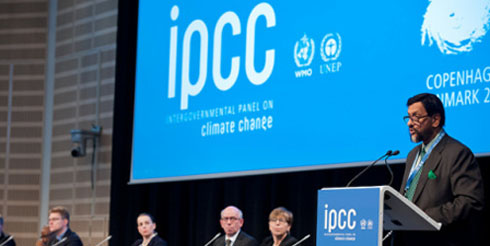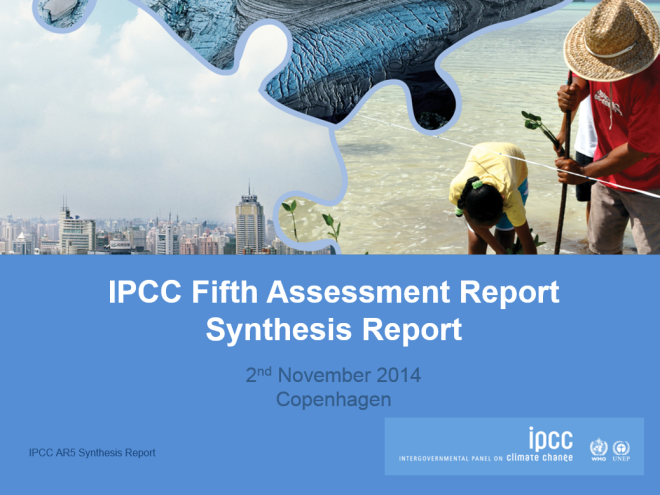The Intergovernmental Panel on Climate Change Nov. 2 issued its Synthesis Report – a combination three IPCC Working Group reports, which IPCC says are “the most comprehensive assessment of climate change ever undertaken.”
The report is the joint effort of 800 lead authors, almost 1,000 more supporting authors and a combination of 30,000 scientific papers. The report “distills and integrates the findings” and provides information critically important for policymakers, IPCC says.
But David Malakoff poses the pertinent question in his article in Science magazine: “whether the new IPCC report can help overcome the political and economic obstacles that have blocked major movement of reducing emissions.”
The report calls for making changes — and doing it more quickly than planned. While many countries have carbon-reduction plans that aim for 2030 or 2050, the report says that 2020 might be a wiser goal. If we’re not ready until 2030 to implement some serious mitigation techniques, we’d better be really because it will be high time to cut the carbon or see some tangible effects.
Denmark, for example, pledged to be fossil-fuel free by 2050 with plans to go 100% renewable. But it will be a tricky transition, since renewable sources are still weather-dependent and energy storage technology is not yet commercially viable. The New York Times reported on U.S. and Chinese estimates as President Obama and President Xi Jinping of China reached a climate agreement this week.
Whether Denmark or Denton, Texas, transitioning from carbon-producing fossil-fuels won’t be an easy task. But, IPCC’s report urges, we must find ways if we want a sustainable future for posterity, er – ourselves a decade or two from now.
Read more in Malakoff’s article on the IPCC Synthesis Report–>
View more photographs from IPCC Working Groups & the Copenhagen event–>

